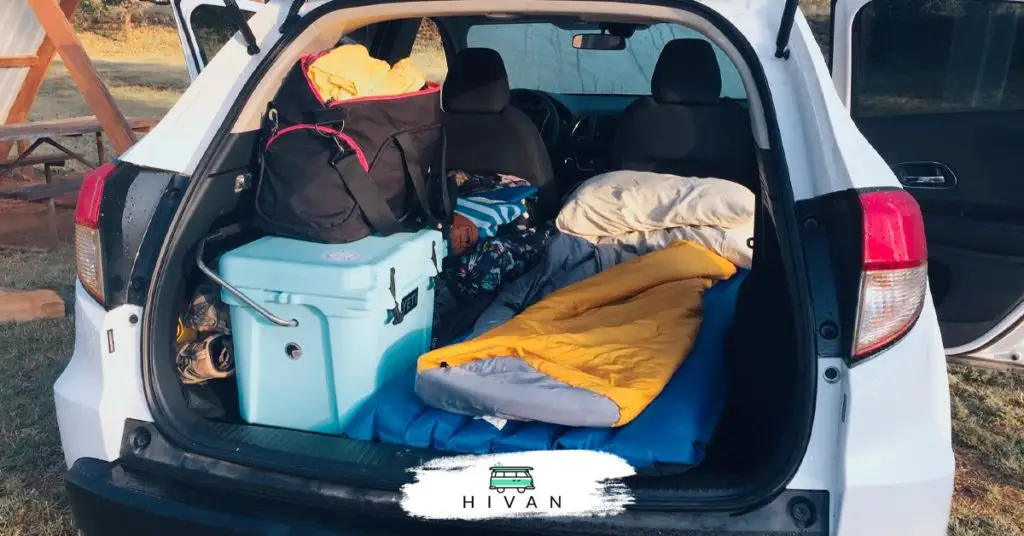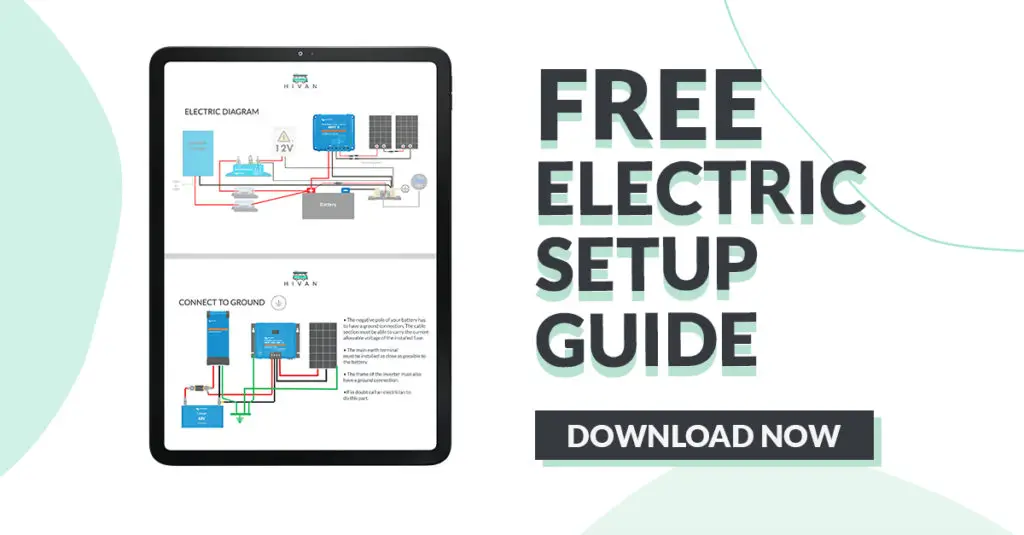Hi-van is supported by its audience. When you purchase using our links, we may earn an affiliate commission (no added cost to you). Learn more
It is not uncommon to find yourself in a situation where you need to sleep in your car. It could be that you’ve been driving for a while and feel sleepy, and continuing to drive could result in an accident. Additionally, you could be taking a trip and want to save on hotel costs.

Generally speaking, sleeping in your car isn’t bad for you and won’t cause significant health issues. The risks of sleeping in your car include carbon monoxide poisoning, backache, muscle pain, and heat exhaustion. However, these problems are easy to manage if you take the necessary precautions.
If you spend a lot of time driving or are planning on sleeping in your car on a road trip or vacation, it will be helpful to consider the pointers below to make sleeping in your vehicle comfortable and safe.
How to Sleep In Your Car Safely
As long as it isn’t against the law to sleep in your car in a certain area (more on that below), then sleeping in your car shouldn’t be bad for you. Just be sure you take steps to maximize your comfort and safety while doing so.
Here are a few things to keep in mind:
Minimize the Risk of Carbon Monoxide Poisoning
Carbon monoxide is an odorless gas that, if inhaled, can have a range of symptoms. Symptoms can be mild, flu-like symptoms such as headaches, fatigue, and nausea. Severe symptoms can be fatal, including convulsions, cardiorespiratory failure, and unconsciousness.
When fuel burns, carbon monoxide is produced. So while it might be tempting to keep the car switched on so that you can regulate the temperature inside the vehicle with the air conditioning or heater while you sleep, doing this puts you at risk of inhaling harmful emissions.
Another source of carbon monoxide could come from the exhaust. It is vital to check your exhaust regularly to ensure that debris and dust have not built up inside and that it is not leaking emissions into the car.
If you really need to keep your car running while sleeping in it, you should ensure to be in an open area where the carbon monoxide can dissipate. You should never keep your engine running inside a closed space where the gas will be stuck inside.
More info: Here's an article that is related to the subject Can You Suffocate at the Back of a Van?
Find the Perfect Position for Sleeping Comfortably
It goes without saying that sleeping in your car doesn’t allow for you to stretch out, and depending on how tall you are, sleeping comfortably could be challenging; crunching up to fit into the backseat could leave you with an aching back and stiff muscles in the morning, but there are ways to avoid that.
Depending on the type of car you drive, there are different options to make the best use of the space.
Most SUVs, minivans, wagons, and hatchbacks have rear seats that you can fold down. This creates an ample, flat area to make a bed. Unfortunately, sedans don’t typically have rear seats that can be folded, so you can either sleep in the backseat or put the driver or passenger side front seat down and sleep in it.
Take Measures to Avoid Heat Exhaustion
Cars are made of metal, and metal attracts and retains heat. When your body temperature increases to 105 °F (40.55 °C) or above, you will very likely suffer from heatstroke. The symptoms that you should be aware of include dizziness, dry skin, and a rapid pulse. It is also common to lose consciousness.
Just sitting in a parked car on a hot summer’s day can cause heat exhaustion or heat stroke. If you are based in a hot climate and plan to sleep in your vehicle, you need to consider where you park. Avoid parking in closed spaces like parking garages or basements.
Also, try not to park close to other cars. Opt for parking outdoors and a fair distance away from other vehicles. Parking outside provides better ventilation and keeps the car cooler. Keep the windows open slightly and if you have a sunroof, keep it open too.
Be Aware of Potential Safety Concerns
Probably the biggest threat to sleeping in your car comes from criminal activity. Sleeping in your car leaves you vulnerable to attack from someone who is looking to steal your belongings or carjack your vehicle.
For this reason, it is imperative to park somewhere that is safe or that has a security guard present. If possible, tint your windows and always make sure that your doors are locked. If your windows are not tinted, cover them using a sheet or improvise with a hoodie or jacket. This way, people outside will not be able to see inside your car.
Related Article: How To Sleep in a Car Without the Alarm Going Off
Sleeping in Your Car: What the Law Says
It might be perfectly safe to sleep in your car, but you certainly don’t want any trouble with the law! Depending on which state you are traveling in, the laws relating to sleeping in your car vary, and some are stricter than others.
There are several places that will permit you to park your car overnight and sleep in it. Some examples are casinos, rest stops, Walmart, shopping malls, and food outlets.
If you have plans to go on a road trip and sleep in your car, it is always wise to phone ahead and check if you would be allowed to park your car and sleep in it overnight.
Final Thoughts
If you ever find yourself in a situation where you need to sleep in your car, there’s no cause for concern. Whether you’re taking a road trip or are suddenly tired while driving for a long time, it’s perfectly safe to sleep in your car provided you take a few simple precautions.
Be aware of your surroundings, don’t keep the engine running or the air conditioning on, leave the windows open a crack, and fold the seats down if possible so that you can sleep comfortably, and you are sure to be safe sleeping in your car.
Find this content useful 🙂 ?
Subscribe to our Newsletter and get a free Solar Electric Diagram + shopping list.

